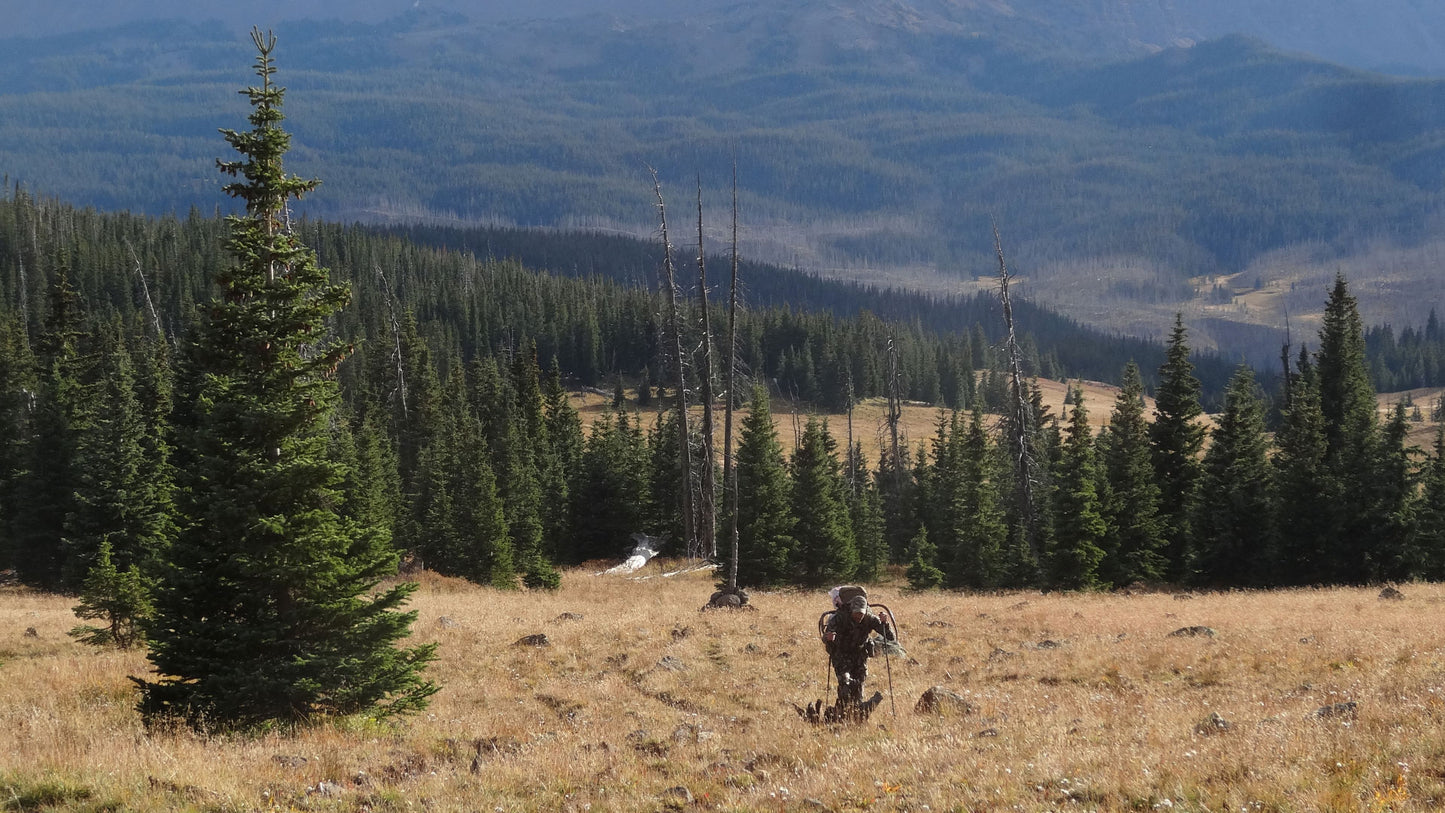
“You don’t know what you don’t know.”
Many experienced and knowledgeable hunters often forget what it is like to be a beginner. A lesson they learned through experience in years past is now something they do by instinct, rather than forethought. Given that their knowledge is now ingrained into their subconscious, they can easily overlook the pieces of wisdom that would benefit newer hunters.
While newer hunters “don’t know what they don’t know”, experienced hunters often know more than they may be able to communicate effectively.
This gap between the experienced and the beginner is something we encouraged listeners of the Hunt Backcountry Podcast to reflect on, and then share their “What I wish I knew when I started” lessons with us.
Some of these lessons are about the tactical aspects of hunting, but others are small tid-bits of practical information — which may seem trivial at first — but can have a big impact on both the experience and success that hunters may have on the mountain.
Have a detailed plan for your hunt.
“Have a detailed written hunt plan for each and every day of your hunt. Select 3-5 locations throughout your hunting area, depending on the length of the hunt. Walking aimlessly to cover ground thinking that you will eventually run into elk is a poor plan. Sure, you may get lucky, but chances are you’re just wasting energy. Also, know how you are going to get water in the backcountry and make sure that it is reliable.”
—Alex C.
Find your own way.
“One thing it took me a while to realize, and that I am now teaching to my son, is there is not just one right way to be successful. New hunters have to find ‘their way’. For example, Ryan Lampers hunts elk differently than Corey Jacobson, and Corey hunts them differently than Paul Medel, and Paul hunts them differently than Steve Speck, and so on and so on. As a new hunter, you have to learn from as many mentors as possible; pull from all of their collective wisdom and tactics, then find what works best for you.”
—Jed B.
Don’t get lazy with critical supplies.
“Remember to pack FRESH toilet paper. On one trip I had grabbed some TP that was in a ziplock bag from a prior trip. When I went to use it and pulled it out of the bag, it all just fell apart. It was a really crappy situation to be in!”
—Joe H.
Fill tags for yourself.
“I heard one of your podcast guests say in the past to ‘make killing a habit.’ So how do you do that? As a newer hunter, don’t pass on legal animals when you are starting out. If any elk is legal, take the first cow, spike, or rag horn you can. Be a meat hunter. On top of that, look for extra antlerless opportunities on deer, elk, antelope and other species. Even hunt small game whenever you can. This will help sharpen your skills and reduce anxiety when a big buck or bull is eventually in front of you.”
—Chris S.
Embrace the adventure, and the challenge.
“It seems that enough hunters don't look at these adventures as what they are. As you guys have discussed on the podcast, success in hunting isn't a guarantee and you have to enjoy the process of trying. We all probably watch Instagram way too much and see successes from everyone else, so we pressure ourselves to achieve the same. You can’t compare ‘industry people’ to the average one-trip-a-year hunters. It's very easy to get discouraged and want to quit. A bad attitude when you encounter setbacks is a sure-fire way to ruin a hunt, but staying positive can really pay off.”
—Kyle R.
Prepare for success.
“One thing that I have noticed about inexperienced hunters is that they tend to not be fully prepared for when they get an animal on the ground — especially when solo hunting. Having game bags and a sharp knife is just the start. There are many other things to consider… What if the animal dies on a steep slope? How do I break down a rear quarter on an elk solo? Do I have the strength and equipment to hang quarters high enough in a tree so that bears can't get to them?”
—Stephen O.
Spend more time than money.
“From my perspective, new hunters and even many experienced hunters tend to overlook the same thing — time spent developing experience. Hunters of all abilities seem to spend time researching tactics and perfecting their kit, but then don't take the time to use knowledge and gear in the field enough to be truly comfortable with it. Your podcast with Dave from Alaska hit on this, as he mentioned he could tell when people had taken the time to work with their gear ahead of time and how he'd had to teach people to use their trekking poles. If your gear stops being a distraction and just works for you, then the hunt gets all your attention and that can make all the difference in the world.”
—Tom H.
Use every resource available.
“I have learned that trails and/or roads on maps and mapping software tools are not always there. This is a tough lesson to learn in the field or at 4 am trying to access a hunting spot. Mapping apps are awesome and invaluable, but they are not perfect. Before you plan a trip based around a sole access point make sure it is there and it is open. Get a motor vehicle use map and a trails map for the area you are looking into.”
—Craig T.
Know that the backcountry will break, or strengthen, your bonds.
“I have grown up hunting out east, but hunting the west has always been on my mind. A couple years ago myself and a buddy did an archery elk trip to Colorado. I've done a lot of outdoor activities with this buddy — fishing, hunting, and just plain being outdoors. Prior to the hunt we set expectations on what we wanted to accomplish and we really did meet them. We both saw elk and other wildlife, heard bugling bulls, and my friend even took a shot with no success. It was awesome. But what caught me off guard was how we were not really getting along during the hunt. It was a new experience for both of us and we hadn't spent time together quite like this. I really wanted the trip to be a full backcountry experience, but my buddy just wanted to kill an elk with the least amount of effort possible. I should have seen it coming though. He did no e-scouting, no pre-season training or hiking, and he was too cheap to buy good gear. But then on the trip he complained about the weight of his pack, the lack of his training, and how hard this hunt was. The experience was fun, but frustrating at times. We are still good friends, but I don't think I'll do a hunt like that with him again. You guys speak of the importance of a good hunting partner but they can be hard to come by. I didn't see that coming from a buddy I knew.”
—Robert P.
Make it enjoyable.
“Have FUN. While a western hunt can be hard work, it is supposed to be fun. Take that extra second to look at the mountains, streams and trees that make the west what it is. Catch some trout, make some Flu Flu arrows and try to shoot a grouse. Whatever it is, make an adventure and keep a positive attitude.”
—Craig T.
10 Lessons Learned
There you have it, 10 lessons learned from newer backcountry hunters. Apply these lessons to your future hunts and you should not only have more success, but you’ll also have a more enjoyable time in the mountains.
